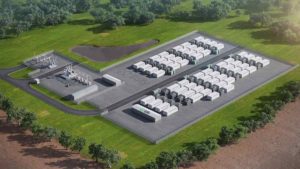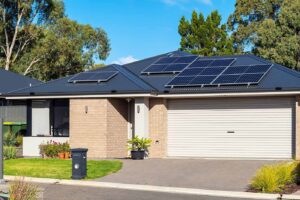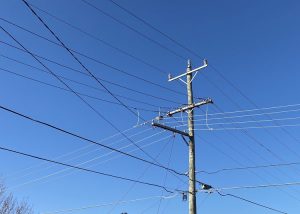As a federal election creeps closer, likely due either at the end of this year or at the latest, May 2022, public opinion on climate policy and feelings on the urgency of climate change become increasingly relevant.
A recent update of the Lowy Institute’s long-running survey of views on climate in Australia reveal several fascinating trends that shed some insight onto the pathways that both of Australia’s major parties are likely to take during an election, on climate, and also reveal some worrying and non-obvious problems.
Last week, the International Energy Agency found in a major new report that advanced economies like Australia need to cease the construction of new fossil fuel mines, such as for coal and gas, plan to shut down coal plants by 2030, introduce strict vehicle emissions standards and phase-out combustion engine sales by 2030-2035, and begin the transition to heat pumps and home electrification as soon as possible.
The Lowy poll touches on some of these actions, with some interesting findings.
A total ban on new coal mines, for instance, is incredibly popular. For the total population, 63% of respondents support this. It’s 60%, for respondents from regional Australia. In Queensland, the state with most of Australia’s new planned coal mines, it is 53%, and in NSW, the other hotbed of planned coal, it’s 64%. It’s also 64% for low income Australians, and 62% for high income Australians. Politics is the only real differentiator here – it’s 42% for Liberal-Nationals, 72% for Labor and 92% for the Greens.
“Many Australians appear to be moving away from coal. Six in ten Australians (63%) support a ban on new coal mines opening in Australia. The same number (63%) say they support reducing Australian coal exports to other countries. Only three in ten Australians (30%) say they support the federal government providing subsidies for building new coal-fired power plants”, write the report’s authors, Natasha Kassam and Hannah Léser.
Australia’s planned coal mines and extensions to coal mines are coming under increasing scrutiny. A recent court case brought against the Federal Government by a group of young climate activists resulted in a partial win, with the court establishing that the Environment Minister bears responsibility for the climate impacts of coal mines approved in Australia.
Many other findings in the poll reiterate the strong level of support for climate action in Australia. Renewable energy, electric vehicles, net zero targets and an ‘increase in commitments’ all score consistently high with Australians, in the Lowy poll. This has been the case in Australia for some time, and these views have remained mostly resilient to the impacts of the COVID19 pandemic. “This represents a reversal of the dip in 2020 during the early days of the pandemic, but remains eight points below the high watermark of concern in 2006”.
The results also highlight that the majority of Australians view reducing emissions as their top priority for energy policy, compared to reducing bills and reducing the risk of blackouts. This is likely related to falling household bills due to renewable energy growth, and the continued overall stability of the electricity grid even as renewable energy has grown significantly and rapidly across Australia’s grids.
 South Australia, once derided as the ‘blackout’ capital of Australia that critics blamed on renewable energy, has among the highest support for reducing emissions and the lowest prioritisation of “reducing blackouts”, for Australia’s states and territories. Concern about blackouts is far higher in states and territories with greater reliance on coal and gas.
South Australia, once derided as the ‘blackout’ capital of Australia that critics blamed on renewable energy, has among the highest support for reducing emissions and the lowest prioritisation of “reducing blackouts”, for Australia’s states and territories. Concern about blackouts is far higher in states and territories with greater reliance on coal and gas.
One of the most concerning findings of the Lowy survey is the relatively high level of support for the use of methane gas in power generation. In terms of support for “increasing the use of gas for Australia’s energy generation’, 58% of respondents support the idea. In the Northern Territory, it is the most supported policy concept in the survey, with 89% support, however in the ACT it is the second lowest, with 36% support. Even a quarter of Greens voters support increasing the burning of this fossil fuel in Australia’s power grids.
This suggests climate advocates and energy communicators must work significantly harder to communicate the dangers of an over-reliance on gas, both in power grids and within homes. It’s likely related to the familiarity of Australians to the use of gas, particularly in households for heating and cooking. A recent report from the Climate Council found that the usage of gas in homes is causing direct health impacts, in addition to climate change impacts. And there is a growing consensus globally that gas is not required on electricity grids, whether for ‘baseload’ power or for rare usage to firm renewable output during periods of low wind and sun.
Another recent report from Aware Super, featuring the well-known climate opinion researcher Dr Rebecca Huntley, focused closely not on climate impacts but on the potential benefits of various climate solutions, linking these benefits with the problems created by the COVID19 pandemic. Households can save significant amounts on bills, growing investment in new energy technology can help meet growing demand and many new jobs would be created through rigorous investment in climate solutions, in Australia.
Unfortunately, it seems like both major parties in Australia are not keen to address the core challenges within climate change. These relate to immediate policy action to reduce emissions by around 60 to 70% by 2030, to align with a 1.5C target and net zero by 2050, alongside the linking of post-pandemic recovery funds to green initiatives, to ‘build back better’, as Huntley’s report puts it.
Partly, Australia’s Labor party appears captured by the same fossil fuel interests as the federal government is, particularly around the extraction and overseas sale of fossil fuels. Partly, there just seems to be little appetite to engage directly with the rising chorus of action and change occuring around the world, at a pace far faster than anyone seems to have anticipated.
But there is a deep and significant majority of Australians waiting for either government to take a step in the right direction, to realise genuine ambition, and do it in a way that’s directly beneficial to all Australians. This fight out to be playing out now, rather than in the messy and predictably meaningless time before a federal election. It’s there for the taking, for any party that wants to take it.







